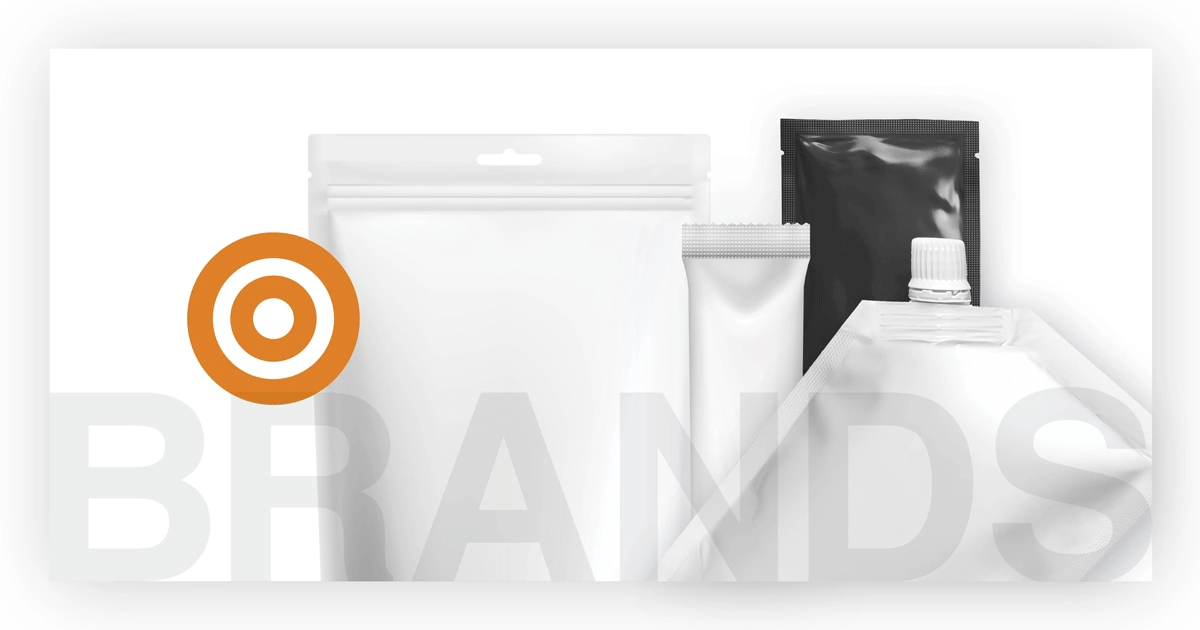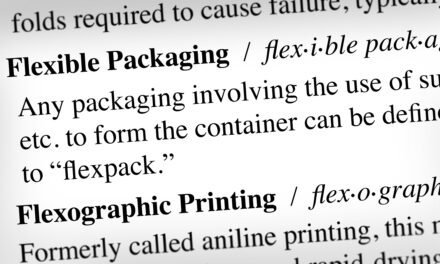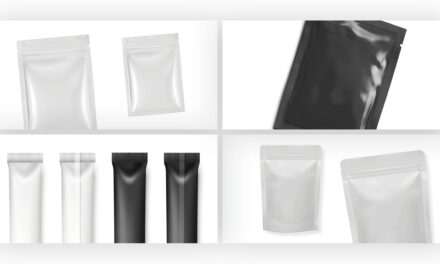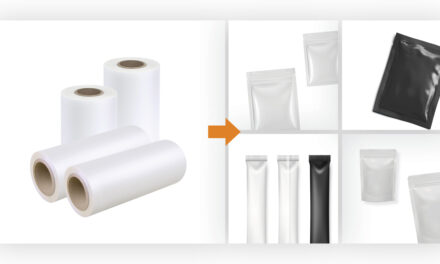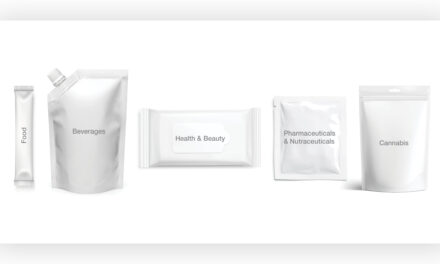CONVERTER/BRAND COMPATIBILITY
Flexible packaging is an extremely diverse industry that encompasses a range of products, market segments, and consumer bases. It should come as no surprise that a single flexible packaging converter will rarely be able to meet the needs of every brand or partner that crosses their path.
Deciding which opportunities are worth pursuing and which should be passed over is a crucial skill that every flex pack converter should master to ensure long-term growth for their business. Operations that lack this targeted, strategic approach can easily lose millions of dollars when their reputation is damaged through poor service, or their investments do not generate the expected returns.
This article will examine several factors that can affect how compatible a flexible packaging converter is with a given brand. It will also share some tips about how flex pack converters can skillfully identify and target their ideal customer profile.
Understanding Your Strengths
Before we look at some key factors that can affect a converter’s partnership with a brand, let’s cover three areas that help define any flexible packaging converter and determine what position they hold in the market space.
Equipment capabilities are by far the most important thing to consider when finding your place in the industry. Because converting equipment typically requires such a large investment, flexible packaging converters must be extremely cautious when purchasing new machinery. Ensure your team understands the strengths and weaknesses of your presses, lamination equipment, embellishment systems, and other machines.
Newer, smaller operations may benefit from learning to maximize their initial investments before upgrading to larger or more specialized equipment, and some brands may value the simplicity of a basic packaging production process. On the other hand, converters that have mastered their existing equipment may find new opportunities can be unlocked by adding onto the services and embellishments they offer. Whether your operation has only a few units or an expansive fleet of machinery, there are niches in the industry that can prove highly profitable with the right business strategy.
Company size can greatly influence how much support your operation can offer brands. As the flexible packaging market continues to grow and gain new players, more brands are prioritizing marketing consultative services and quality assurance in their converters. Smaller companies may need to focus on specialized services and support and therefore garner attention from more niche brands. Larger companies may have more room to play in the market as they are likely able to meet the needs of a wider variety of brands.
Experience level affects every aspect of a flexible packaging converter’s business. Having an unbiased grasp of your team’s experience level can help ensure you take reasonable risks when it comes to investments and develop realistic goals for growth and expansion. When brands ask for more involvement in areas such as application engineering and product development, a flex pack converter should have full confidence in their ability to meet the brand’s needs before committing to a solution. Newcomers to the industry can make training and learning a top priority from the outset to help their team gain experience more quickly, opening the door to previously inaccessible partnerships.
WHAT ARE BRANDS LOOKING FOR?
Like flex pack converters, brands have predetermined budgets and goals that will affect their decision when choosing who to partner with. Many brands will enter initial business conversations with a list of qualities they need to see in their packaging partner. While many of these factors will be dealbreakers, an otherwise ideal converter/brand match may be able to compromise on certain areas depending on their priorities.
As you read through this list, consider how you would rank the importance of providing each item to brands. Once you have a proper grasp of your business’s strengths, weaknesses, and areas of focus, it is much easier to identify which brands will be most compatible with your company long term. You may also discover that there are certain areas you would like to begin developing within your company in order to unlock new opportunities with different brands.
Competitive Pricing
Perhaps the most obvious factor on this list, competitive pricing is a key concern for almost every brand. Competitive pricing does not mean that a converter’s products and services are the cheapest available option without regards to quality or support. Instead, it means that, given the brand’s goals and market demographic, the converter is able to help the brand maintain the profit margins it needs to justify the costs of production.
For high-end products, such as cannabis or specialty wellness products, the actual cost of production may be extremely high compared to standard goods, but the specialty options command a high enough sales price to make the production costs worthwhile. Packaging for high-end products typically needs to meet more stringent requirements regarding materials, application engineering, embellishments, and performance (the latter being especially important for food products and medical supplies).
To ensure your pricing is competitive, research what other converters in your niche charge for their services and ensure the value you offer brands is comparable or superior. A converter who has recently purchased high-end, specialty equipment and invested resources into education and training will likely find it difficult to compete with a converter who produces only the most economical, simple products. In this case, the brand ordering simple products may not value the specialized converter’s services and product offerings; the high-end converter would benefit from finding customers who value what they offer and are willing to pay the higher price.
Speed to Market
With the advent of digital presses, speed to market has become a much larger factor in the business strategies of most brands. For many brands, such as those that sell products with short shelf lives or include current events in the marketing of their packaging, speed to market lies at the center of their business model.
It is difficult to be truly competitive in such markets without using a digital press due to how efficiently the press’s software can convert a concept file into a flawless print. By using thermal or e-beam lamination, a digital converter can produce packages that will be shipped out the same day. Even larger brands that can accommodate long lead times may need the services of a digital converter to meet a tight deadline or get products on store shelves before they go bad.
Take into consideration that digital presses cannot currently match the quality and flexibility of their conventional counterparts, and many brands prioritize graphic quality and packaging performance over speed to market. In these cases, the lengthy pre-press process on a flexographic press is anticipated by the brand with an expectation that the results will be well worth the longer lead times. Also, a conventional press can produce larger volumes, while a digital press is more suited for small- to medium-volume runs of multiple SKUs.
If speed to market is one of your converting operation’s primary strengths, prioritize brands who value quick turnarounds and seek out openings with larger brands who may need your services on short notice. Otherwise, partner with brands who have higher priorities, such as volume and graphic quality.
Structures and Packaging Formats
Pre-laminations can be extraordinarily helpful for new converters as well as those who want to specialize in only a few specific applications, but they can also be limiting for many brands. Likewise, the ability to add or explore new packaging types upon request may be of utmost importance to certain customers.
Creating structures in-house enables converters to adjust the construction of their packaging to reduce costs, increase durability, and enhance the performance of a package according to a brand’s needs. Still, it can prove a time-consuming and expensive process as the converter will need advanced knowledge of material types and proper laminating equipment to combine the separate layers. In the same way, offering a wider variety of packaging formats requires the converter to invest in different machinery and understand the process well to ensure they produce high-quality packaging.
On the other hand, not every converter needs to offer flexibility regarding structures and packaging formats. If a converter is thriving in a highly specialized role, such as creating cosweb, or cosmetic web, stick packs and sachets for high-end brands, arbitrarily investing in new options may not be a wise decision. Gain a clear understanding of the value your sourcing methods and offered formats bring to your company and find brands who benefit, as well.
Value-Add Effects
As the retail market grows more saturated, many brands are seeking out ways to make their products stand out from the competition. Converters play a crucial role in marketing through the value-add effects and embellishments they offer. While there is certainly a place in the market for straightforward, economical packaging, most converters will want to offer at least one type of value-enhancing feature.
Such effects can include a tactile print web film, colorful holographic effects, foiling (including variable-data designs for customization), creative package shapes, and many other features. The equipment and knowledge needed to offer each of these effects is varied, so smaller converters may need to select one or two processes they can reliably offer brands.
Fitments and alterations to packaging (zippers, tear notches, valves, spouts, etc.) can also prove important to many brands, especially those that cater to market segments like children’s snack foods, on-the-go products, and packaging designed for accessibility. Again, the equipment needed to offer fitments can require a large initial investment, so converters should either target brands that already align with their packaging offerings or make sure they have solid leads that could be pursued through adding fitment options.
Knowledge Sharing
Not every converter needs to be an educator, but many brands value this extra support from their packaging partners. Converters that prioritize internal education as well as external are in the unique position of serving as true subject matter experts for their customers, oftentimes resulting in long-term partnerships characterized by sustainable growth and mutual knowledge sharing. If your team places high value on learning and training, seek out brands who are eager to learn and share in turn.
However, not every brand will be interested in in-depth training and education. Some may prefer for their converter to simply complete orders with little interest in why certain decisions were made or how the process and products could be improved. For smaller or newer converter operations, this type of customer may be a better fit as they will expect less personalized support and guidance. As your company grows in numbers and experience, you may be able to offer more dedicated knowledge sharing to a broader range of customers.
Sustainable Solutions
Even as regulations and customer expectations shift, many brands are not concerned with sustainability. Still, others are beginning to make more eco-conscious practices a central part of their brand identity. If your company has made it a priority to offer more environmentally friendly materials and packaging solutions, seek out brands who are already aligned regarding sustainability goals.
Because green solutions are typically pricier than conventional options, it can be difficult to upsell a brand that is not already invested in sustainability. Targeting customers who are willing to pay a premium to offer consumers more sustainable packaging is a much more effective way to ensure business remains strong and help the industry slowly shift towards more environmentally friendly practices.
LOOKING TO MAKE A CHANGE?
If you would like personalized consultation on how to target different brands from a Nobelus solutions expert, be sure to contact our team via phone or email. Whether you’re interested in purchasing our films or laminates or want training on flex pack business strategies, application engineering, food safety certification, and other related topics, our team is ready and eager to help.

